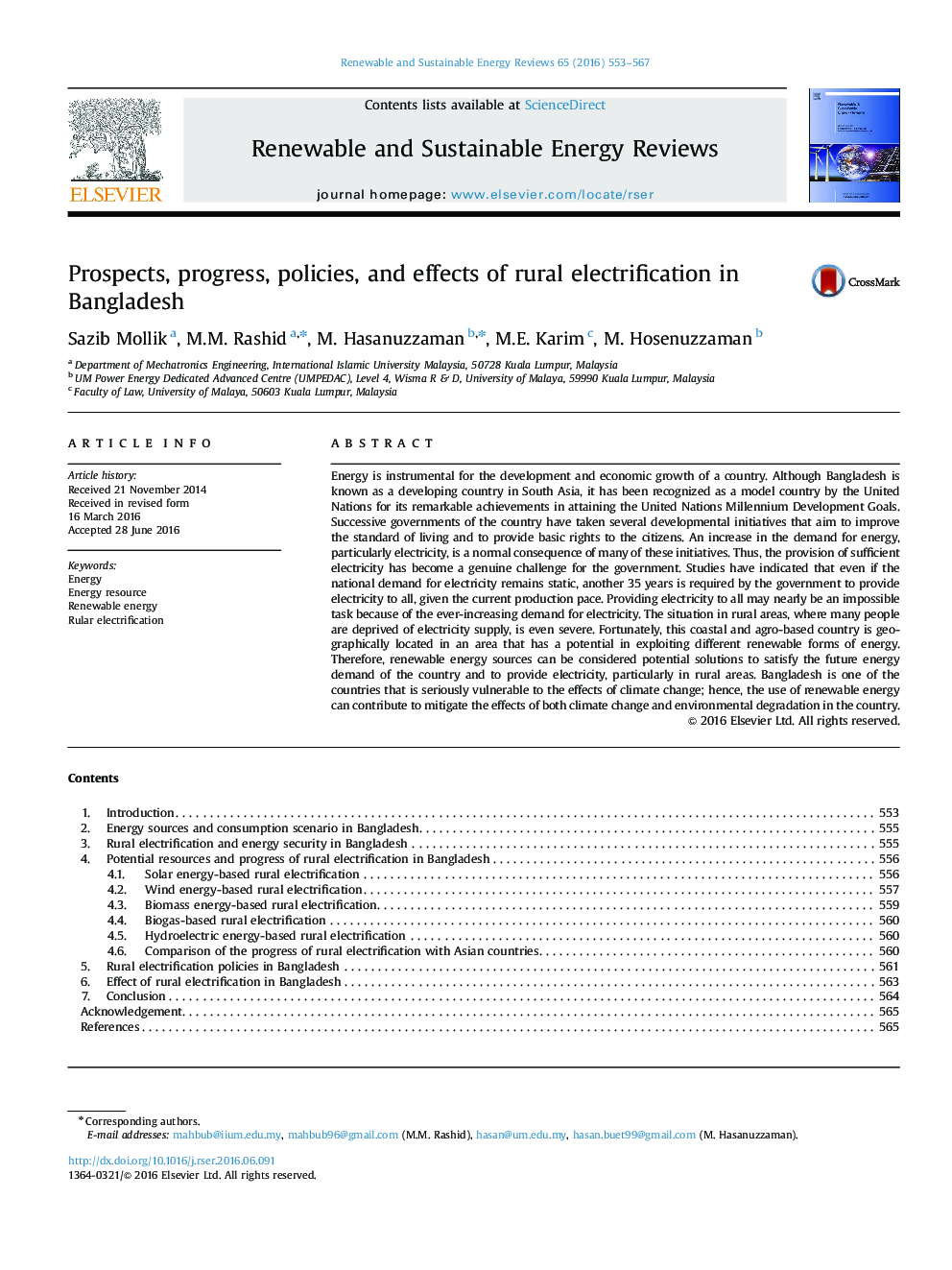| Article ID | Journal | Published Year | Pages | File Type |
|---|---|---|---|---|
| 8112894 | Renewable and Sustainable Energy Reviews | 2016 | 15 Pages |
Abstract
Energy is instrumental for the development and economic growth of a country. Although Bangladesh is known as a developing country in South Asia, it has been recognized as a model country by the United Nations for its remarkable achievements in attaining the United Nations Millennium Development Goals. Successive governments of the country have taken several developmental initiatives that aim to improve the standard of living and to provide basic rights to the citizens. An increase in the demand for energy, particularly electricity, is a normal consequence of many of these initiatives. Thus, the provision of sufficient electricity has become a genuine challenge for the government. Studies have indicated that even if the national demand for electricity remains static, another 35 years is required by the government to provide electricity to all, given the current production pace. Providing electricity to all may nearly be an impossible task because of the ever-increasing demand for electricity. The situation in rural areas, where many people are deprived of electricity supply, is even severe. Fortunately, this coastal and agro-based country is geographically located in an area that has a potential in exploiting different renewable forms of energy. Therefore, renewable energy sources can be considered potential solutions to satisfy the future energy demand of the country and to provide electricity, particularly in rural areas. Bangladesh is one of the countries that is seriously vulnerable to the effects of climate change; hence, the use of renewable energy can contribute to mitigate the effects of both climate change and environmental degradation in the country.
Related Topics
Physical Sciences and Engineering
Energy
Renewable Energy, Sustainability and the Environment
Authors
Sazib Mollik, M.M. Rashid, M. Hasanuzzaman, M.E. Karim, M. Hosenuzzaman,
